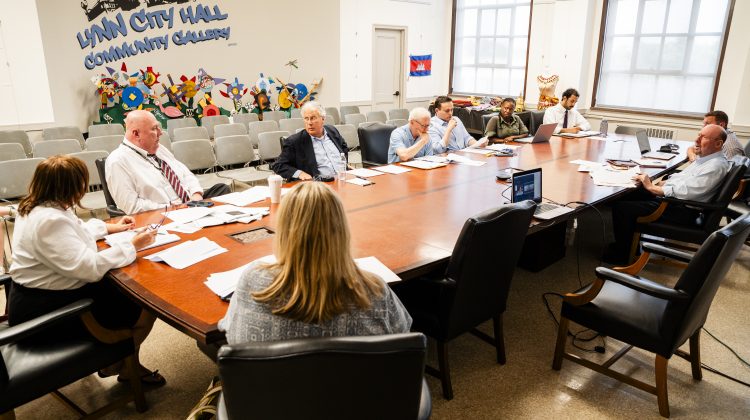LYNN — At its meeting Thursday night, the Lynn Charter Review Committee mulled over changes that regarded appointment power and vacancies.
The committee, which is being advised by the Edward J. Collins Center for Public Management at UMass Boston, tabled a discussion regarding School Committee member vacancies.
The Collins Center is suggesting the committee change the current charter, which requires a special election to be held if a vacancy occurs in the office of a School Committee member. The recommendation would be to appoint a new person through a two-thirds vote by a committee of a whole, until the next formal election cycle.
While some committee members expressed indifference to this change providing efficiency to the process, some expressed concern with how residents might perceive it, particularly in regards to the upcoming Sept. 3 primary in which School Committee member Sean Reid is running for State Representative.
Reid stated on the record during a forum with Lynn Community Television that he would finish his term as School Committee member if he were to win the election.
Regardless, any changes to the charter that are voted on by the committee will not go into place until the next municipal election cycle.
“There’s going to be a lot of pushback,” said Pam Edwards, an organizer at Mass Senior Action Council. “The voters in Lynn are used to feeling a certain way after an election, and without a lot of explanation there’s going to be pushback. … It’s going to be like we did it on purpose for an individual.”
Mayor Jared Nicholson’s Policy Director Danya Smith said while he didn’t feel strongly about the change, he recognized the change being “electoral in nature” would be made by a committee that had representation from the City Council, School Committee and Mayor’s Office.
Edwards asked why the same change would not be made for City Council vacancies.
James Tarr, a representative from the Collins Center, said without knowing much about the politics of Lynn, it is a change the center suggests to most municipalities they work with.
The committee also tabled a discussion about a change to the charter that would broaden the language of what happens in the case of a mayoral vacancy.
The center is advising the committee to remove the language that defines reasons for a mayor’s absence such as “sickness, absence from the city or other cause.” The suggested change would add that the City Council could remove the mayor using a two-thirds vote if they found them unable to perform the general duties of office. In that case, the City Council president would take office as acting mayor, like in the current charter.
Smith said the absence of the specific language raises the question of what unable to perform the general duties of office means.
Joseph Scanlon, former councilor-at-large, said it could lead to some “interesting stuff.”
“Mental illness, physical disability,” he said. “It becomes a public debate, and it’s a privacy issue. You know, we all have Woodrow Wilson in our head.”
Scanlon and Edwards agreed that the threshold should be raised to three-fourths.

